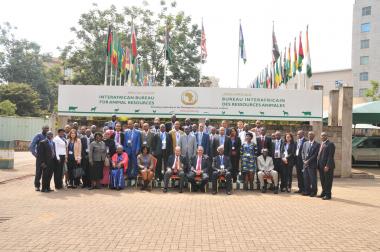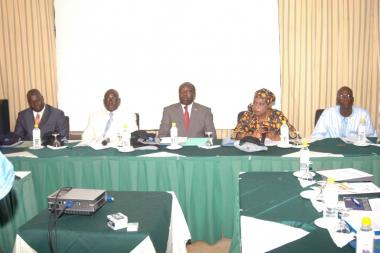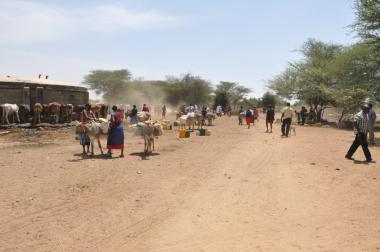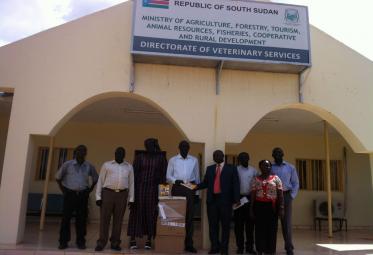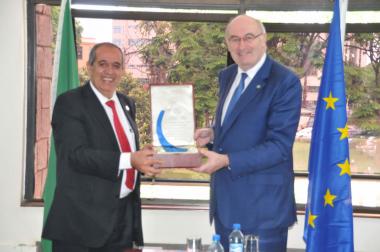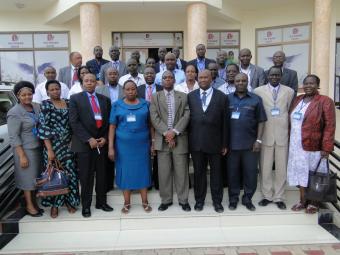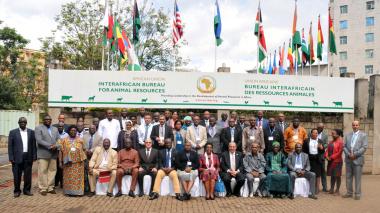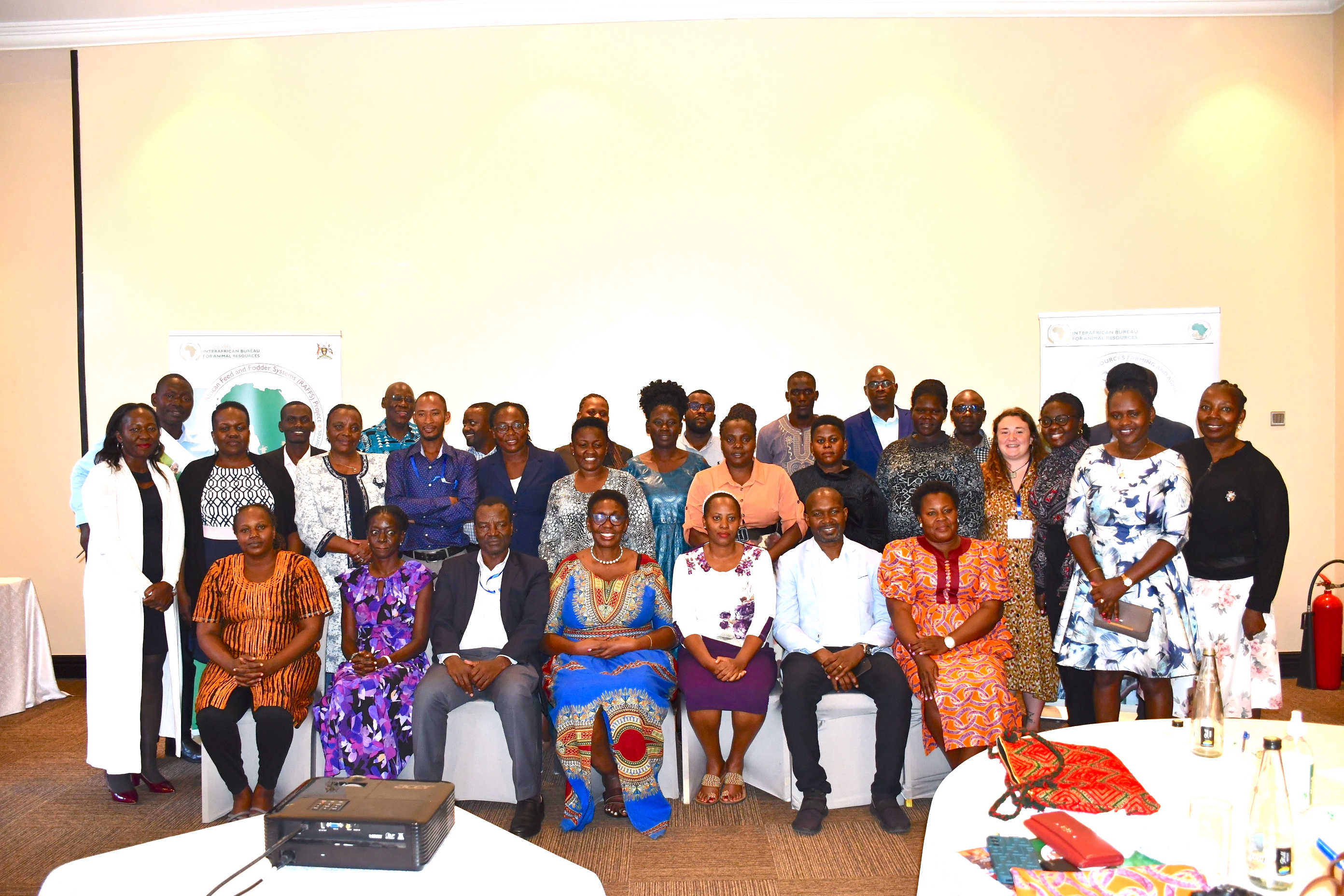
Kampala, Uganda - October 11, 2023
In a forward-thinking initiative, Uganda played host to the launch of two transformative events last week aimed at invigorating Africa's livestock sector. The Resilient African Feed and Fodder Systems (RAFFS) Project was inaugurated alongside the Ugandan chapter of the African Women in Animal Resources Farming and Agribusiness Network (AWARFA-U). The events, held at Mestil Hotel, Kampala, marked the beginning of comprehensive efforts to address the challenges faced in animal feed and fodder sector in Africa.
Uganda has a substantial livestock population contributing to 4 per cent of the national GDP. The country has 14.6 million cattle, 16.9 million goats, 4.7 million sheep, 4.5 million pigs, and 42.9 million chicken. Livestock contributes significantly to Uganda's GDP share estimated at over $ 1.7 million. The fisheries sector contributes over $ 800,000 million.
Exports continue to increase expenses on food and nutrition security while there is a prevalence of stunted children in the country as well as obesity. The country further faces the challenge of achieving a balanced feed and fodder production capacity. The government, is however, putting in place mechanisms to enhance quality control in the sector by setting standards, regulations, and certifications while working out modalities of establishing a national database for fodder business.
Resilient African Feed and Fodder Systems (RAFFS) Project
RAFFS, an ambitious project funded through a collaborative effort by the Bill & Melinda Gates Foundation and the African Union Commission, seeks to address the pressing issues affecting the feed and fodder sector in Africa. These include disruptions brought about by the triple C crises: Covid-19, Climate Change, and the Conflict in Russia-Ukraine.
Dr. Huyam Salih, Director AU-IBAR emphasized the importance of the project, noting that the triple C crises had posed significant vulnerabilities in Africa's livestock sector: “The extensive loss of 9.5 million livestock, valued at over 2 billion USD, due to drought in the greater Horn of Africa illustrates the sector's vulnerability. This loss is equivalent to twice Kenya's total food import budget in 2022. It's also three times the export value of coffee from Uganda, Africa's largest coffee exporter.”
The inauguration of the project in Uganda is the first step of the data collection process after which rigorous assessments will follow. The findings will hence provide credible data to guide and support the development of short-term interventions to address feed and fodder shortages.
Honourable Hellen Adoa, Minister of State for Fisheries and Woman Member of Parliament for Serere, officiated the event and highlighted the immense challenges faced by Africa's livestock systems especially in the last four years due to the triple C crisis.
Mr. Dennis Mulongo Mahoho, Acting Assistant Commissioner Animal Nutrition and Principle Range Ecologist as well as the focal point for the RAFFS Project, highlighted the need for a more strategic approach to feed and fodder. He emphasized the importance of articulating and developing an economic feed sector in alignment with national strategic objectives.
RAFFS Project aims to provide evidence-driven solutions to ensure affordable, quality feed and fodder resources crucial for the sustainable production of animal-sourced foods. The project will operate at both country and continental levels, with Uganda being one of the six core countries identified for its implementation.
The project carried out a continental survey in 55 African Union Member states whose results show the lack of national databases for feed and fodder in the majority of surveyed countries. It delved into the impact of the triple C crises on Africa's feed and fodder sector, highlighting the substantial challenges farmers faced, particularly during Covid-19 related restrictions. Many farmers responded by increasing their feed and fodder production to cushion themselves while the government put in extra efforts to support the sector by including measures to foster Public-Private Partnerships and tax adjustments to bolster its resilience.
About AU-IBAR:
AU-IBAR operates as a technical office within the African Union Commission, with a core mission to support African Union member states in harnessing the potential of animals for human well-being and economic development. The organization plays a pivotal role in coordinating and advancing livestock development across the continent.
AWARFA-Uganda Chapter
The project is committed to empowering women in the feed and fodder and livestock-sourced food value chains. The AWARFA-N Uganda Chapter, even before its official launch, had shown great initiative and achievements. The chapter is poised to receive support in formal registration, resource mobilization, and capacity building. The network plans to work on consolidating a five-year strategy, mobilizing resources, and establishing financial and insurance partnerships.
AWARFA-N, is dedicated to promoting women in agribusiness across Africa. This chapter, approved by the Uganda Registration Services Bureau, comprises 95 members engaged in diverse agricultural activities, from cattle keeping to food processing. Its mission is to empower Ugandan women in animal resources farming and agribusiness, fostering unity, knowledge exchange, informed advocacy, and member welfare improvement.
The launch of both the RAFFS Project and AWARFA-Uganda Chapter signifies an essential step towards strengthening Africa's agricultural sector, ensuring food security, and empowering women and youth in the sector. These initiatives will address the vulnerabilities exposed by the triple C crises and provide sustainable solutions in the sector. The collaboration between AU-IBAR, the Government of Uganda, and AWARFA is expected to contribute significantly to efforts towards a resilient sector.
Note to Editors:
For additional information, please visit AU-IBARs website on RAFFS
For more Project information contact Dr. Sarah Ashanut Ossiya - sarah.ossiya@au-ibar.org
For communications and media inquiries, contact: Fiona Imbali- fiona.imbali@au-ibar.org

